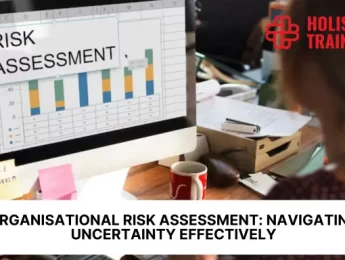- Table of Contents
- Introduction:
- The 2025 Workforce and the Advantages of Remote Work
- Remote Work vs. Office Work:
- Top 4 Challenges of Remote Work
- The 10 Key Skills to Succeed in Remote Work in 2025
- 1. Self-Discipline and Time Management
- 2. Digital Communication Skills
- 3. Proficiency in Digital Tools
- 4. Collaboration and Virtual Teamwork
- 5. Adaptability and Tech Agility
- 6. Focus and Deep Work Capability
- 7. Emotional Intelligence (EQ)
- 8. Accountability and Ownership
- 9. Problem-Solving and Critical Thinking
- 10. Cross-Cultural Communication
- Why Knowing These Skills Matters
- Conclusion:
Introduction:
The way we work has undergone a remarkable transformation. What was once seen as an alternative option, often reserved for freelancers or tech workers, has now become a mainstream and strategic model adopted by companies worldwide. Remote work is no longer just a pandemic-era solution - it’s the new standard for millions of professionals across industries.
In 2025, the global workforce is more connected yet more distributed than ever before. Organizations are hiring talent beyond borders, teams are collaborating across time zones, and productivity is being redefined outside the traditional office walls. However, this shift brings with it a new set of expectations, responsibilities, and required skills. To thrive in a remote environment, professionals must go beyond basic technical competence. Success now depends on adaptability, self-discipline, digital communication skills, and emotional intelligence, among other traits.
In this article, we’ll explore how the remote work model is evolving in 2025 and what it means for professionals and employers alike. We'll begin by outlining the unique characteristics of today's job market and the benefits of remote work. Then, we'll draw a clear comparison between remote and traditional office work, followed by a breakdown of the key challenges faced by remote workers. The core of the article will focus on the 10 most essential skills needed to succeed in remote work in 2025, supported by insights from leading studies and expert recommendations. Finally, we’ll explain why developing these skills is crucial, how you can acquire them, and how this knowledge can help you future-proof your career.
Whether you're currently working remotely or considering transitioning into this model, this guide is designed to equip you with the tools for long-term success in the ever-evolving world of work.
The 2025 Workforce and the Advantages of Remote Work
As we step into 2025, the global job market is experiencing a paradigm shift. Technological advancements, a growing demand for flexible working environments, and the normalization of hybrid and remote models have redefined what employment looks like. Companies are increasingly prioritizing output over office hours, and professionals are seeking better work-life balance, autonomy, and purpose in their careers.
One of the most profound outcomes of this transformation is the wide-scale adoption of remote work. It’s no longer a perk—it’s a norm. Remote jobs are available in sectors that were once considered office-bound, including education, healthcare administration, customer service, software development, marketing, and even project management. This new era empowers professionals to work from anywhere, contribute globally, and structure their workdays according to personal productivity patterns.
The benefits are significant. For employees, remote work reduces commuting time, cuts down on daily expenses, and allows for a more personalized workspace. For companies, it leads to increased employee satisfaction, lower turnover, and access to a global talent pool. According to a 2024 report by Buffer, 98% of remote workers expressed the desire to continue working remotely for the rest of their careers, citing flexibility and better mental well-being as key motivators.
Moreover, remote work is closely linked with digital inclusion and sustainability. By decentralizing the workforce, remote work supports underrepresented communities, reduces urban congestion, and contributes to lowering the carbon footprint of daily operations. In short, the remote-first model is not just a trend—it’s a smart, strategic evolution of how we work and live.
But with these advantages come new challenges and demands. Understanding how remote work differs from traditional office work is essential in preparing for the future—and succeeding in it.
Remote Work vs. Office Work:
While both remote and in-office jobs aim for productivity and collaboration, their dynamics are fundamentally different. Here's a brief breakdown:
Aspect | Remote Work | Office Work |
|---|---|---|
Work Environment | Home, co-working spaces, flexible locations | Fixed office location |
Communication | Mostly asynchronous (emails, messages, Zoom) | Face-to-face, meetings, direct conversations |
Team Collaboration | Virtual tools like Slack, Trello, Notion | Physical whiteboards, in-person brainstorms |
Productivity Tracking | Self-managed, outcome-oriented | Often hour-based, manager-supervised |
Flexibility | High (choose your hours and setup) | Low (fixed schedule and environment) |
Work-Life Balance | More control over time | Commute and office hours can reduce flexibility |
Cost for Employee | Saves on transport, meals, wardrobe | Additional daily expenses |
Networking | Requires effort via digital communities | Built-in through office culture |
While remote work enhances autonomy and flexibility, it also requires greater self-discipline, structure, and strong digital skills. These differences are crucial when considering the challenges involved.
Challenges of Remote Work
- Isolation and Lack of Social Interaction
Remote work can be lonely. Without casual conversations at the coffee machine or team lunches, professionals may feel disconnected. According to Harvard Business Review, isolation is one of the top complaints among remote workers, often affecting mental health and team cohesion. - Communication Barriers
Virtual communication lacks the nuance of face-to-face interactions. Tone, body language, and immediate feedback are harder to interpret, leading to misunderstandings. Remote teams must rely heavily on clear written and verbal communication to avoid friction. - Blurred Work-Life Boundaries
Without a physical separation between work and home, many remote workers struggle to “switch off.” The result? Burnout. A 2023 Forbes study revealed that 41% of remote professionals work more hours than they did in-office, often at the expense of personal time. - Distractions and Self-Discipline
Working from home means navigating distractions—children, chores, personal devices. Success in remote roles requires a high level of self-regulation and time management, which can be difficult for those used to structured environments.
The 10 Key Skills to Succeed in Remote Work in 2025
Succeeding in remote work in 2025 demands more than just a reliable laptop and internet connection. It requires a well-rounded set of digital, interpersonal, and cognitive skills that help professionals work independently, adapt quickly, and stay aligned with virtual teams. Below are the ten most essential skills for thriving in the remote workplace, explained in detail with practical insights and relevant studies.
1. Self-Discipline and Time Management
Self-discipline and time management are critical for remote professionals who must structure their days without external oversight. With no one monitoring their progress in person, workers need to prioritize tasks, avoid distractions, and deliver results independently. Establishing a daily routine and using tools like Google Calendar, Todoist, or Notion can significantly improve focus and reduce procrastination. According to a Stanford University study, implementing structured time-blocking leads to a 13% boost in productivity among remote workers.
2. Digital Communication Skills
In a remote setting where most interactions are written or occur via video calls, strong digital communication skills are essential. The ability to be clear, concise, and emotionally intelligent in your messages prevents misunderstandings and enhances collaboration across asynchronous platforms. Tools like Grammarly and Loom can help refine communication, while applying Slack etiquette ensures smoother interactions. Harvard Business Review highlights that communication skills are twice as crucial in remote environments compared to face-to-face work.
3. Proficiency in Digital Tools
Being tech-savvy is no longer optional for remote workers—it’s a fundamental requirement. From video conferencing platforms like Zoom to project management tools such as Asana, Trello, and Monday.com, employees must quickly learn and adapt to various software applications. This ability not only enhances workflow efficiency but also reduces dependency on tech support. According to LinkedIn’s 2024 Workplace Report, 73% of hiring managers consider digital tool proficiency a top hiring factor for remote roles.
4. Collaboration and Virtual Teamwork
Remote work doesn’t mean working in isolation; it actually requires more intentional collaboration than in traditional offices. The ability to engage with team members across different time zones and cultural backgrounds, contribute in brainstorming sessions, and maintain regular updates is key. Tools like Miro for virtual whiteboarding or Slack for informal communication help create a sense of team presence. Employees who feel connected to their teams are 2.5 times more likely to be high performers, according to Gallup (2023).
5. Adaptability and Tech Agility
In an ever-evolving digital landscape, adaptability is a major asset. Remote professionals must be comfortable with change—whether it’s learning a new tool, adjusting to a company restructure, or adopting new workflows. This tech agility allows individuals to stay resilient and resourceful in dynamic environments. Continuous learning through platforms like Coursera and Udemy is essential to maintain a competitive edge. McKinsey Global Institute ranks adaptability among the top three predictors of remote success in the next decade.
6. Focus and Deep Work Capability
With countless distractions at home, the ability to concentrate deeply for extended periods—referred to as "deep work"—can dramatically elevate productivity. Workers who train themselves to avoid multitasking and stay fully immersed in complex tasks deliver higher-quality results and feel more fulfilled. Creating a distraction-free workspace and applying methods like Pomodoro can enhance focus. Research shows that employees trained in deep work techniques can achieve up to 30% higher output.
7. Emotional Intelligence (EQ)
Remote work limits non-verbal cues, making emotional intelligence a key differentiator in team success. The ability to empathize with colleagues, manage your own emotions, and interpret others’ tone and intent helps build stronger virtual relationships. High EQ contributes to smoother communication, reduced conflict, and increased collaboration. Practicing active listening, pausing before responding, and regularly checking in with teammates can enhance emotional awareness.
8. Accountability and Ownership
In the absence of physical supervision, remote employees must demonstrate a high degree of accountability. Taking ownership of tasks, being proactive, and reliably delivering on commitments are traits that define trustworthy and successful team members. When individuals treat each task as if they own it, it creates a culture of responsibility and consistency. Gallup’s 2024 report found that teams with a strong sense of accountability enjoy 36% higher retention rates and better performance outcomes.
9. Problem-Solving and Critical Thinking
Working remotely often requires employees to resolve issues without immediate support from peers or managers. Critical thinking and problem-solving allow professionals to analyze situations, weigh options, and implement effective solutions independently. These skills are especially valuable when facing unexpected technical issues, client challenges, or workflow inefficiencies. The World Economic Forum’s 2025 Jobs Report ranks problem-solving among the most in-demand competencies in the global workforce.
10. Cross-Cultural Communication
As remote teams become more globally distributed, the ability to communicate across cultures is more important than ever. Understanding diverse communication styles, time zones, holidays, and expectations helps avoid missteps and fosters collaboration. Professionals who take time to learn basic cultural norms and adjust their tone and behavior accordingly build stronger global relationships. Erin Meyer’s book The Culture Map offers excellent insights into how cultural context shapes business communication in remote teams.
Why Knowing These Skills Matters
Identifying the skills is only the beginning. To remain competitive in 2025, professionals must continuously sharpen their abilities. This means embracing lifelong learning, engaging in regular self-assessment, and seeking feedback.
Ways to build these skills:
- Enroll in remote work skill bootcamps (Holistique Training, LinkedIn Learning, Skillshare, Coursera).
- Join online communities for accountability (e.g., remote work Slack groups).
- Use productivity and reflection journals.
- Attend virtual networking events and webinars.
Mastering these skills doesn’t just improve performance-it boosts confidence, opens global opportunities, and safeguards your career against future disruption.
Conclusion:
Remote work isn’t just a phase—it’s the foundation of the modern workplace. By 2025, the most successful professionals will be those who intentionally develop the right mindset, master essential digital skills, and maintain high emotional and self-regulatory intelligence.
This guide explored how remote work has become central to today's economy, how it compares to traditional office roles, and the challenges that come with it. But most importantly, it broke down the 10 key skills that will define your success in this digital-first era. These skills aren't just about work—they're about building a lifestyle that promotes independence, adaptability, and balance.
Now is the time to invest in your future. Whether you're a job seeker, a current remote employee, or an employer building a remote-first team, the road ahead demands preparation.
Want to stay ahead in the remote work world? Join our newsletter for exclusive insights, free guides, and access to career-boosting online courses designed specifically for remote professionals.
Explore our curated list of remote work skills trainings and master the tools and techniques top employers are looking for. Let 2025 be the year you take control of your career - and thrive, no matter where you are.

























